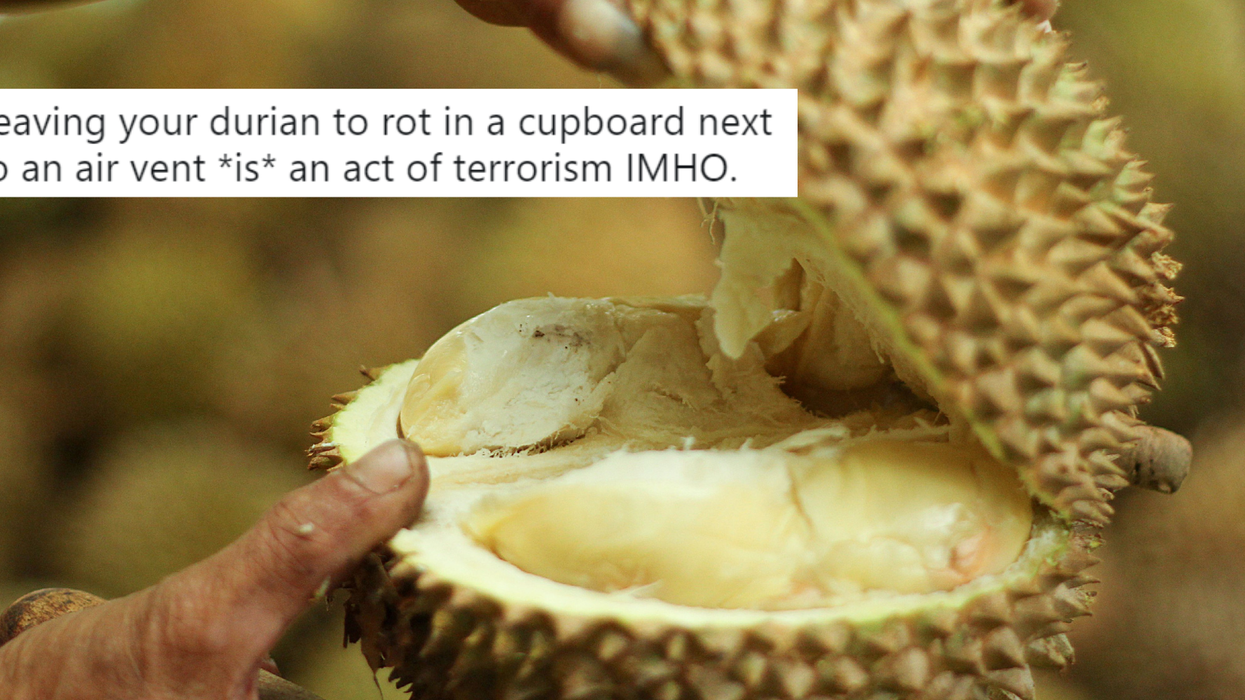
If you’ve ever smelled durian fruit, you’re not likely to forget it in a hurry.
While opinions differ, it’s a peculiar blend reminiscent of rotten eggs, onions and those socks you left in a gym bag at the back of a cupboard 15 years ago.
Or in the words of Anthony Bourdain:
It smelled like you'd buried somebody holding a big wheel of Stilton in his arms, then dug him up a few weeks later.
Now imagine it filling the air around you, like you’re walking past a Subway shop next to an open sewer in a post-Brexit apocalypse of dangerously low food storage standards.
Exactly this (well, not quite) happened at a university library last week.
550 unsuspecting people at Canberra University had to be evacuated after somebody left a durian next to an air vent, prompting fears of a gas leak.
Those inside were evacuated within six minutes after the fire brigade arrived on the scene.
But officials soon traced the suspected leak to a durian lying in a badly chosen bin.
A post on the library's Facebook page said:
"The lingering gas-like smell in the building is completely safe - someone left a durian fruit in one of our bins!"
The infamous fruit has been banned on many forms of public transport in Thailand, Singapore and Japan.
It's easy to see why.
Exactly the same thing happened to a university library in Melbourne almost a year ago to the day, with more than 500 students evacuated.
While nobody has owned up to the most recent atrocity, maybe someone's trying to start an annual prank?
Or maybe the same student decided to transfer.
More: Astronaut reveals what space smells like. It isn't good













